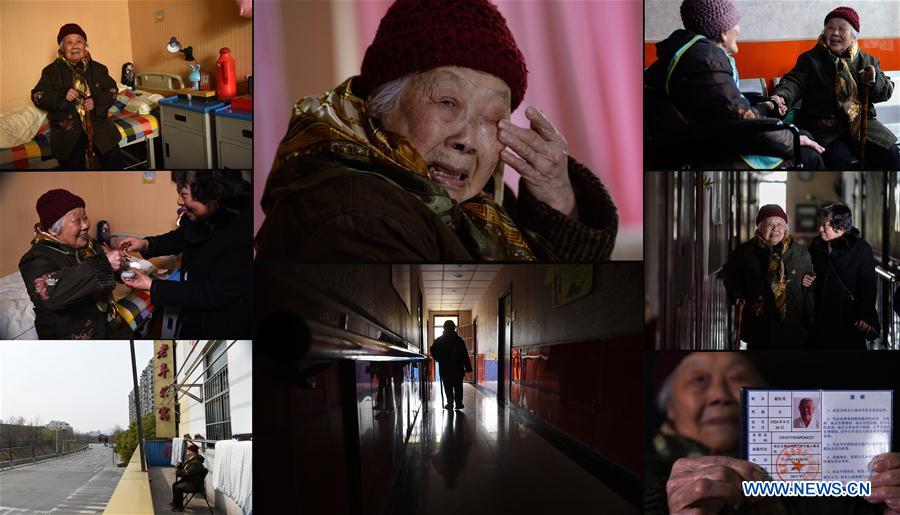JINAN, Dec. 11 (Xinhua) -- After borrowing 1,400 yuan (212 U.S. dollars) to buy a computer, Ren Qingsheng made his first online sale in 2010, earning 600 yuan in profit from the deal.
That year, Ren, the first business owner to tap into e-commerce in Dinglou Village, in east China's Shandong Province, made a total of 7,000 yuan from online sales.
Previously, he had made a living travelling across the country with bags of costumes, selling to photography studios, but the profits were humble.
"This year, my annual revenue is about 10 million yuan, only just among the top ten business people in our village," said Ren, now Party chief of Dinglou, which is administered by the city of Heze.
E-commerce has allowed poor farmers to quickly achieve a more prosperous life, as the country pursues a rural revitalization strategy to speed up the modernization of rural areas.
Among the 17 major cities in coastal Shandong Province, Heze is one of the most underdeveloped. The city, famous for its peony cultivating industry, has witnessed a boom in "Taobao Villages" in recent years.
Taobao, the major e-commerce platform of Alibaba, is a leading enterprise in the rapidly growing sector. To be nominated as a "Taobao Village" requires annual transactions of more than 10 million yuan and more than 100 online shops located in the village.
The number of Taobao Villages in the area administered by Heze has risen from only two in 2013, to 168 this year, making up two-thirds of the total in the province. Heze has become one of the cities with the most Taobao Villages nationwide.
Dinglou alone has more than 150 online stores and garment factories. The village has just 316 households, but there are now 210 private cars -- a large figure for what was previously impoverished area with poor road conditions.
According to Sun Aijun, Heze's Communist Party chief, the city's e-commerce transactions have grown by more than 50 percent year-on-year for the past three consecutive years.
From January to November, Heze's total e-commerce deals exceeded 160 billion yuan, up 70 percent year-on-year.
The boom in e-commerce in rural areas has encouraged many young people working in cities to return to their hometowns and open start-ups.
Zheng Bendong is one of them. A native of Heze's Yuncheng County, he graduated from college in 2009 and decided to return home to set up an online sports shoes store.
Currently, he runs a down quilt factory and a Taobao shop. During the Singles' Day online shopping festival, also known as Double Eleven, held on Nov. 11, his revenue exceeded 10 million yuan.
"E-commerce has made my start-up successful," said Zheng.
Nationwide, the number of Taobao Villages exceeded 2,100 in 2017, compared with just 200 in 2014. This year, the transactions in these Taobao Villages hit 120 billion yuan, according to Alibaba.
Coastal Zhejiang, Guangdong and Jiangsu provinces boast the highest numbers of Taobao Villages, jointly amounting to 68 percent of the total. Shandong, Fujian and Hebei have more than 100 Taobao Villages each. Taobao Villages have also appeared in remote Guizhou Province, and Xinjiang and Guangxi autonomous regions.
"China's digital economy has provided a very good opportunity for rural development," Gao Hongbing, vice president of Alibaba, said.
"E-commerce brings development to remote and impoverished areas, and boosts modern production in rural areas, therefore revitalizing the countryside," said He Yupeng, vice director of the China Institute for Rural Studies at Beijing's Tsinghua University.
Ren has witnessed the great changes of his own village -- more money, more cars, greater harmony among family members and an obvious improvement of public security.
"I hope our commodities will not only sell well in our own country, but also across the world," he said.

















